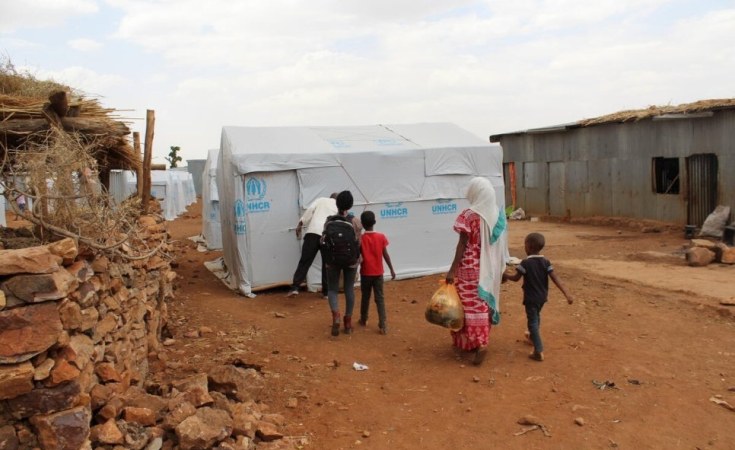Geneva — The UN Refugee Agency (UNHCR) is ringing new alarm bells due to ongoing violence in eastern areas of the Democratic Republic of the Congo (DRC) reaching a “devastating level.”
UNHCR spokesperson Matthew Saltmarsh said at a UN press conference on March 26 that two years of “cyclical conflict” in the North Kivu territories of Rutshuru and Masisi have forced over 1.3 million people to flee their homes within the DRC.
That has led to 5.7 million people becoming internally displaced across North Kivu, South Kivu, and Ituri provinces.
“Since violent clashes enveloped the town of Sake, in Masisi territory, on 7 February, almost 300,000 people have arrived in the city of Goma and its surroundings, said Saltmarsh.
Asked who is responsible for the attacks, Saltmarsh said the UN does not name groups, but the M23 rebel group is active in the troubled area of DRC.
Fighting in North Kivu province has forced thousands of civilians to flee their homes in the past two weeks.
Heavy artillery
“The deeply troubling trend of the increased use of heavy artillery in the conflict continues amid reports of bombings targeting civilian locations in Minova,” said the UNHCR official.
“The shelling of a commercial centre on 20 March killed a displaced woman and injured at least three others, including two children.”
Those arriving in Goma have swelled spontaneous and official displacement sites as they desperately seek shelter from indiscriminate bombing and other human rights abuses.
“Conditions are dire as growing needs for shelter, sanitation and livelihood solutions outstrip available resources.”
A further 85,000 people have fled the same violence and sought shelter in the Minova region of South Kivu.
In January, the town of Minova already hosted over 156,000 displaced people, the majority living in makeshift shelters.
Saltmarsh said the deeply troubling trend of the increased use of heavy artillery in the conflict continues with reports of bombings targeting civilian locations in Minova.
“The shelling of a commercial centre on 20 March killed a displaced woman and injured at least three others, including two children,” he said.
Reports of indiscriminate bombings in Sake and Goma over recent weeks, which killed more than 30 people and injured at least 80, are also concerning, along with the threat of unexploded ordinance.
“The latest reports from UNHCR teams are alarming. Families continue arriving at sites traumatized and exhausted by the attacks, scarred physically and psychologically,” said Saltmarsh.
Sexual abuse
“Many report being abused – some sexually – during their flight. New arrivals find refuge in makeshift shelters in overcrowded sites, in schools and churches, or with host families, stretching their meagre resources.”
UN and humanitarian officials are worried after seeing systematic incursions by armed groups into civilian structures like displacement sites, hospitals, and health centers.
“In 2023, 25 schools were occupied by non-state armed groups in Masisi and Rutshuru territories alone, and a further 17 schools were attacked,” said Saltmarsh.
“In 2024, seven schools were destroyed by bombings. Looting of medicines and essential materials from health centres in recent weeks further hampered humanitarians’ ability to support displaced people.”
Saltmarsh said that in North Kivu alone, there were 50,159 reported cases of gender-based violence, more than half of which were rape; 90 percent of these victims were women and girls, while 37 percent were children.
Saltmarsh noted that UNHCR has received only 14 percent of the $250 million required for its response in the DRC in 2024, and the lack of funding threatens aid deliveries.


